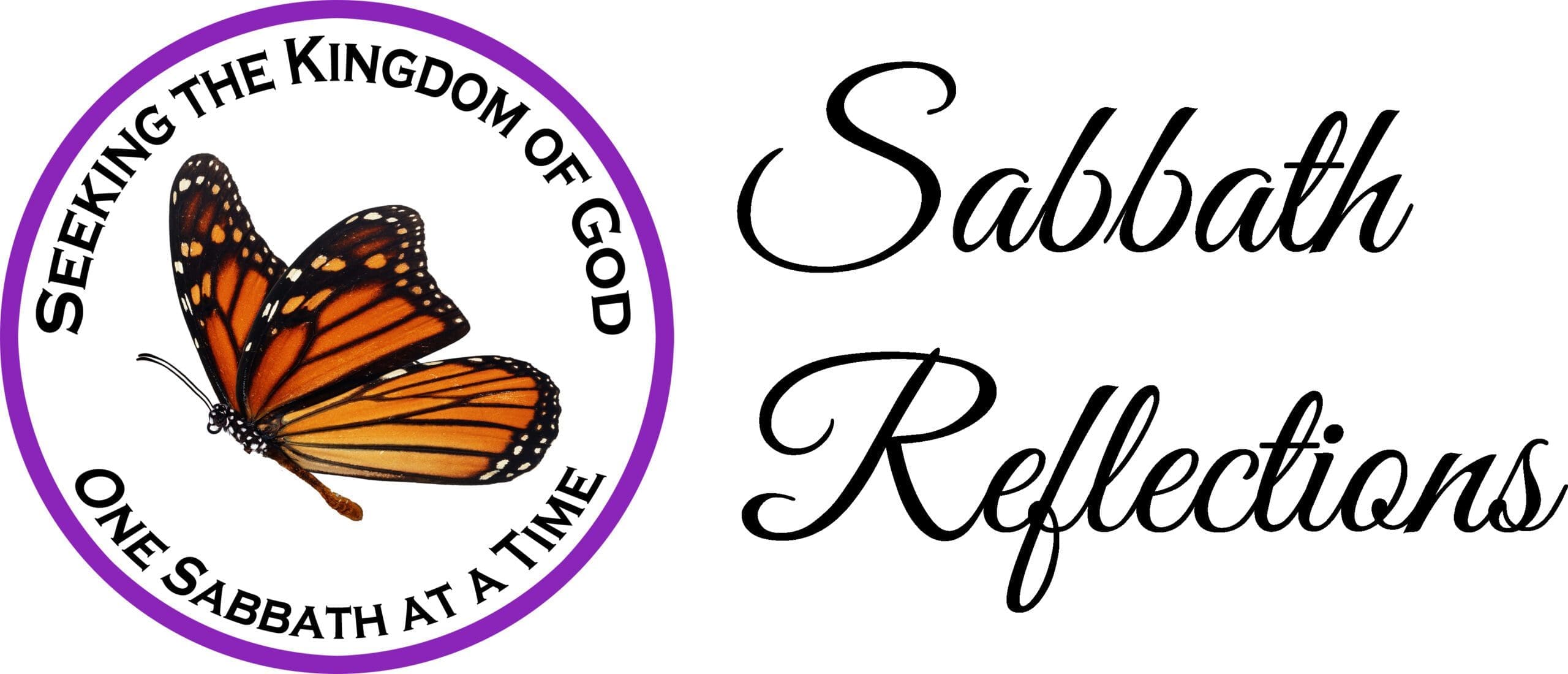SABBATH THOUGHT 2024-08-17—AUTHORITY
May God bless you on His Sabbath day!
The definition of authority is the power to make decisions, give orders, and enforce obedience. Authority is a right of those who are legitimately given it such as duly elected or appointed government officials. Properly wielded, authority is good for the welfare of people but it has rarely been exercised for those reasons. Authority has been so abused that the very word produces negative reactions. It has forever been exploited by the few over the majority for personal gain.
What is most interesting is that the power behind authority exists only if people submit to it. The peace of society is completely dependent upon allowable and prohibited behaviors (laws). Authority is means by which laws are upheld. The authority of the government, school teachers, employers, and police exist to ensure a peaceable life. When laws are ignored and authority is corrupted, destruction of society soon follows.
History has shown that people all too easily give up authority. Students give in to peer pressure and many willingly stepped onto trains to their deaths during the Holocaust. All positions of power exist because they were given that authority, whether it was through elections or by coercion.
NOTE: A true democracy is majority rule where the rights of individuals and minorities do not exist. A constitutional republic, such as the USA, is unique because it preserves and protects the rights of an individual from the majority. For example, the US Constitution guarantees freedom of speech to the individual, not the majority.
It is very common for the majority, wealthy, or physically strong to steal authority by deceiving, threatening, or forcing others to submit against their will. Authority by these means produces tyranny, despotism, and oppression.
The Kingdom of Heaven is a Theocratic Monarchy; that is, God the Father is the Great King[1]. He wields all authority and gives it to others as He alone decides. After His resurrection, Jesus Christ was given all authority in heaven and on earth[2]. Obviously, God the Father is exempt[3]. All who have positions of authority in the Kingdom of God have the right and power to JUDGE:
JOHN 5:26-27 “For as the Father has life in Himself, so He has granted the Son to have life in Himself, 27 “and has given Him [Jesus Christ] authority to execute judgment also, because He is the Son of Man.
Other than God and Jesus Christ, no positions of authority IN the Kingdom of God have been filled in heaven or on the EARTH. Some have been named to positions such as the twelve apostles ruling over the tribes of Israel[4], but they are currently dead. The Kingdom of God is not yet on earth[5] and it is reserved only for those who are Spirit[6]. That means NO man has authority[7] for judgment in the Kingdom of God. For now, all who might have authority must prove they are worthy:
LUKE 19:13, 16-17 “So he [the nobleman] called ten of
his servants, delivered to them ten minas, and said to them, ‘Do business till
I come.’ … 16 “Then came the first, saying, ‘Master, your mina has earned ten
minas.’ 17 “And he said to him, ‘Well done, good servant [slave];
because you were faithful in a very little, have [or possess] authority
over ten cities.’
The word faithful in verse 17 is an adjective; meaning it is a trait or characteristic. A faithful slave is a trustworthy one. Authority is given only AFTER proving they are trustworthy in the position of a SLAVE. Jesus Christ even demanded this of the apostles who will have great authority as kings over Israel:
MATTHEW 20:25-28 But Jesus called them to Himself and said, “You know that the rulers of the Gentiles lord it over them, and those who are great exercise authority over them. 26 “Yet it shall not be so among you; but whoever desires to become great [it does not say exercise authority] among you, let him be your servant. 27 “And whoever desires to be first [it does not say exercise authority] among you, let him be your slave– 28 “just as the Son of Man did not come to be served, but to serve, and to give His life a ransom for many.”
Anyone who desires authority in the Kingdom of God must first be a trustworthy slave to others in this life. That is the complete opposite of authority because a slave has NO authority—NONE! A true slave will submit to everything his master requires of him including his own death. Simply put, one must be willing to completely submit before wielding authority.
The apostles were, however, given authority for two purposes. The first was to cast out demons and heal the sick:
MATTHEW 10:1 And when He [Jesus Christ] had called
His twelve disciples to Him, He gave them power [authority]
over unclean spirits, to cast them out, and to heal all kinds of
sickness and all kinds of disease.
Obviously, the disciples retained this authority to cast out demons and heal as apostles. That authority is one of the hallmarks of the position of an apostle (they also witnessed the death and resurrection of Jesus Christ). It is important to recognize that no AUTHORITY over demons or healing was given to anyone that came after them. Today, someone may have a GIFT but not the authority.
The second authority given to the apostles pertained to the Gospel:
1 CORINTHIANS 9:18 What is my [Paul’s] reward then? That when I preach the gospel, I may present the gospel of Christ without charge, that I may not abuse my [as an apostle] authority in the gospel.
Paul is not saying his authority was from the Gospel but, rather, he had authority to pronounce JUDGMENTS according to the Gospel. Several times Paul received commands “from the Lord”[8] but he also had the authority to rule on matters that pertained to fulfilling the Law according to the New Covenant as well as those unique to the gentiles. For example, he gave judgments on marriage[9]:
1 CORINTHIANS 7:25 … I have no commandment from the Lord; yet I give judgment as one whom the Lord in His mercy has made trustworthy [required to receive authority].
There are other examples of judgments made by Paul where he used the phrase “I say”[10]. Only the apostles had “authority in the gospel” for the purpose of judgments. They were given authority by Jesus Christ (“the keys of heaven”) to and bind and loose judgments on earth AND in heaven:
MATTHEW 16:19 “And I [Jesus Christ] will give you [the disciples] the keys of the kingdom of heaven, and whatever you bind on earth will be bound in heaven, and whatever you loose on earth will be loosed in heaven.”
“You” is plural and Jesus was speaking only to the disciples at that moment (Matt. 16:13). The disciples were the main students of the Teacher so they alone were given authority to expound the Law of God outside of the letter of Old Covenant and the traditions of the Pharisees, Sadducees, and scribes. One reason the NT was written was to record those judgments. Only the original apostles had the authority to bind and loose on earth and in heaven, which also established their teachings and writings as CANONICAL. Whoever has the authority to bind and loose has the authority to pen Scripture!
There is, however, some authority given to elders. One is for edification:
2 CORINTHIANS 10:7-8 … If anyone is convinced in himself that he is Christ’s, let him again consider this in himself, that just as he is Christ’s, even so we are Christ’s. 8 For even if I should boast somewhat more about our authority, which the Lord gave us [elders] for edification and not for your destruction, I shall not be ashamed–
Paul says this authority is “ours” referring to himself and Timothy who was an elder; therefore, this authority is given to elders. What authority? Edification, which simply and literally means architecture or structure. It is an analogy for teaching the word of God (the Gospel). Elders have the authority and responsibility to know and teach the word of God. The apostles were the first to proclaim the Gospel, as Luke said, “those who from the beginning were eyewitnesses and ministers of the word” (Luke 1:2). The apostles were first to “appoint elders in every city”[11] who were given the “authority … for edification” as “stewards of the mysteries of God”[12] and ministers of the New Covenant:
2 CORINTHIANS 3:5-6 Not that we are [competent] of ourselves to think of anything as being from ourselves, but our [competency] [as elders] is from God, 6 who also made us [competent] as ministers of the new covenant, not of the letter but of the Spirit [basis of New Covenant]; for the letter kills, but the Spirit gives life.
The authority of an elder today includes teaching the word of God. As ministers of the New Covenant, they must also have the associated authority for baptism and laying on of hands. Finally, elders have authority to anoint for healings (Jas. 5:14; Acts 19:11). Beyond these things (edification, baptism, laying on of hands, and anointing), there is no other authority—they are simply servants of the brethren. This is why they are called shepherds:
ACTS 20:28 “Therefore take heed to yourselves [elders—v. 18] and to all the flock, among which the Holy Spirit has made you overseers [to watch over], to shepherd the [ekklesia] of God which He [Jesus Christ] purchased with His own blood.
Shepherds feed (edify) and care for (oversee the welfare) the sheep and guard against wolves. They are simply slave-shepherds to the True Shepherd:
1 PETER 2:21, 25 … Christ also suffered for us, leaving us an example, that you should follow His steps: … 25 For you were like sheep going astray, but have now returned to the Shepherd and Overseer of your souls [not THROUGH any man].
There are a couple of scriptures wrongly used to claim authority over brethren:
1 TIMOTHY 5:17 Let the elders who rule [lead]
well be counted worthy of double honor, especially those who
labor in the word and doctrine [not in judgment].
HEBREWS 13:7, 17, 24 Remember those who rule over
[lead] you, who have spoken the word of God to you, whose
faith follow, considering the outcome of their conduct. 8 Jesus
Christ is the same yesterday, today, and forever. … 17 Obey those
who rule over [lead] you, and be submissive, for they watch out
for your souls, as those who must give account. Let them do so with joy
and not with grief, for that would be unprofitable for you. … 24 Greet all those
who rule over [lead] you, and all the saints. Those from Italy greet you.
In all cases, the word is lead, not rule over the brethren. A shepherd leads the sheep[13], he does not DRIVE them. The sheep follow the “faith” of an elder only as he follows the example of Christ[14]. Notice this interesting comment from Paul:
PHILIPPIANS 2:12 Therefore, my beloved, as you have always obeyed, not as in my presence only, but now much more in my absence, work out your own salvation with fear and trembling;
The question is whom or what were they obeying? Paul or the word of God? Obviously, the latter given the fact they “obeyed” even more after Paul left.
Even dealing with troublemakers does not fall under the authority of an elder[15]:
ROMANS 16:17, 19 Now I urge you, brethren, note those
who cause divisions and offenses, contrary to the doctrine which you learned,
and avoid them. … 19 For your obedience has become known to all.
Therefore I am glad on your behalf; but I want you to be wise in what is
good, and simple [innocent] concerning evil.
Paul told the BRETHREN that THEY were to note the troublemakers and avoid them. The LAITY is responsible for naming those who cause divisions and offenses and avoiding them (there is no such word “disfellowship” in the Bible). They were to be “wise in what is good and [innocent] concerning evil.” Paul, who was not even there at the time, told the Corinthians to deal with the man who committed fornication[16].
Authority is the right and power of judgment. Elders do not have authority OVER anyone. Their only authority is to edify, baptize, lay hands on, and anoint. These are acts of service, not control. There is only one Authority over the Body and that is its Head, Jesus Christ. Besides, what authority among men is necessary for you to “work out your own salvation with fear and trembling?” (Phil. 2:12). Is there anything confusing about “judge not that you be not judged?” (Matt. 7:1). Instead of authority over others, ALL are to submit to each another in agape love and good works.
May God’s grace and peace be upon you!
Steven Greene
https://sabbathreflections.org
[1] Matt. 5:35.
[2] Matt. 28:18; et al.
[3] Matt. 28:18; 1 Cor. 15:25-28.
[4] Matt. 19:28.
[5] John 18:36.
[6] John 3:5.
[7] Rom. 14:17.
[8] 1 Cor. 11:23; 14:37; 15:3; Gal. 1:12.
[9] Also 1 Cor. 7:6, 10, 12, 35.
[10] Notice the phrase “I say”—1 Cor. 1:12; 10:20; 15:50; 2 Cor. 9:6; Gal. 3:17; 4:1.
[11] Titus 1:5.
[12] 1 Cor. 4:1.
[13] John 10:7-16.
[14] 1 Cor. 11:1.
[15] Also 2 Thess. 3:14-15.
[16] 1 Cor. 5:1-5.


